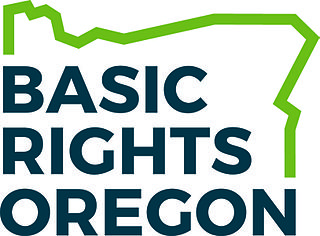
Societal attitudes toward homosexuality vary greatly across different cultures and historical periods, as do attitudes toward sexual desire, activity and relationships in general. All cultures have their own values regarding appropriate and inappropriate sexuality; some sanction same-sex love and sexuality, while others may disapprove of such activities in part. As with heterosexual behaviour, different sets of prescriptions and proscriptions may be given to individuals according to their gender, age, social status or social class.
This is a list of notable events in the history of LGBT rights that took place in the year 1990.
This is a list of notable events in the history of LGBT rights that took place in the year 1988.
This is a list of notable events in the history of LGBT rights that took place in the year 1978.
This is a list of notable events in the history of LGBT rights that took place in the year 1992.
"Gay agenda" or "homosexual agenda" is a term used by sectors of the Christian religious right as a disparaging way to describe the advocacy of cultural acceptance and normalization of non-heterosexual sexual orientations and relationships. The term originated among social conservatives in the United States and has been adopted in nations with active anti-LGBT movements such as Hungary and Uganda.

Basic Rights Oregon is an American nonprofit LGBT rights organization based in Portland, Oregon. It is the largest advocacy, education, and political organization working in Oregon to end discrimination based on sexual orientation and gender identity. Basic Rights Oregon has a full-time staff, a contract lobbyist, and more than 10,000 contributors, and 5,000 volunteers. It is a 501(c)(4) organization that maintains a 501(c)(3) education fund, a state candidate PAC and a ballot measure PAC. The organization is a member of the Equality Federation.

Ballot Measure 19 was a citizen's initiative in the U.S. state of Oregon in 1994. The measure sought to amend the Oregon Constitution, limiting free speech protection for obscenity and child pornography. The measure was rejected by the voters 54.3 percent to 45.7 percent.

California Proposition 6, informally known as the Briggs Initiative, was a ballot initiative put to a referendum on the California state ballot in the November 7, 1978 election. It was sponsored by John Briggs, a conservative state legislator from Orange County. The failed initiative sought to ban gays and lesbians from working in California's public schools.
The Oregon Citizens Alliance (OCA) was a conservative Christian political activist organization, founded by Lon Mabon in the U.S. state of Oregon. It was founded in 1986 as a vehicle to challenge then–U.S. Senator Bob Packwood in the Republican primaries, and was involved in Oregon politics from the late 1980s into the 1990s.

Washington Citizens for Fairness | Hands off Washington (H.O.W.) was created in 1993 to defeat Washington State ballot initiatives 608 and 610, which threatened the civil rights of state and local public employees based on their actual or perceived sexual orientation.
Charter Amendment One was a citizen-led referendum defeated in Gainesville, Florida's city election on March 24, 2009. Titled the "Amendment to the City Charter Prohibiting the City from Providing Certain Civil Rights," the measure would remove the legal protections not explicitly covered under the Florida Civil Rights Act of 1992, specifically with reference to sexual orientation and gender identity.

Proposition 1 was a referendum in the Idaho in 1994, concerning gay rights and minority status. The purpose of Proposition 1 was to prevent homosexual people from receiving minority status in the state. The Idaho Citizens Alliance (ICA) petitioned for 2 years for enough signatures to put their initiative on the November 1994 ballot. Proposition 1 was defeated in the polls by a majority vote.
A referendum on banning same-sex marriage was held in Slovakia on 7 February 2015. Critics claimed the referendum was pushed by religious and conservative organisations, aiming to block gay couples from gaining more rights.
Ballot Measure 13 (1994) was a ballot measure in the U.S. State of Oregon in 1994 concerning gay rights, spousal benefits, access to information, and public education.

The political activity of the Catholic Church on LGBT issues mainly consists of efforts made by the Catholic Church to support or oppose civil government legislation on issues of importance to LGBT people. The Church generally condemns all forms of violence against gay and lesbian people. However, the Church in certain countries has occasionally resisted efforts to decriminalize homosexuality or to introduce measures to tackle discrimination. The Catholic Church also supports legally defining marriage in civil legislation as the union of one man and one woman, therefore generally opposing efforts to introduce gay civil unions and gay marriage – although some clergymen have expressed support for same-sex unions. The Church teaches that not all discrimination is "unjust," and that discrimination against gay people in some spheres of life serves the common good.
Nebraska Family Alliance (NFA) is a fundamentalist Christian organization based in Lincoln, Nebraska. It is a 501(c)(3) organization founded in 1988. It lobbies against gambling, human trafficking, and LGBT rights such as same-sex marriage and LGBT adoption, and advocates for traditional gender roles and family structures, legal restrictions on abortion, and other conservative Christian positions on public policy.
Eugene Local Measure 51 was a 1978 petition calling for a referendum in Eugene, Oregon, to repeal Ordinance no. 18080, which prohibited sexual orientation discrimination in the city. VOICE created and campaigned for the petition, and gathered enough signatures to force a referendum vote. Measure 51 passed with 22,898 votes for and 13,427 against. This bill's passage garnered national attention, with Miami anti-gay activist Anita Bryant's telegram congratulating VOICE on the victory. It is the earliest example of 35 ballot measures to limit gay rights in Oregon.

Amendment 2 was a ballot measure approved by Colorado voters on November 3, 1992, simultaneously with the United States presidential election. The amendment prevented municipalities from enacting anti-discrimination laws protecting gay, lesbian, or bisexual people.








